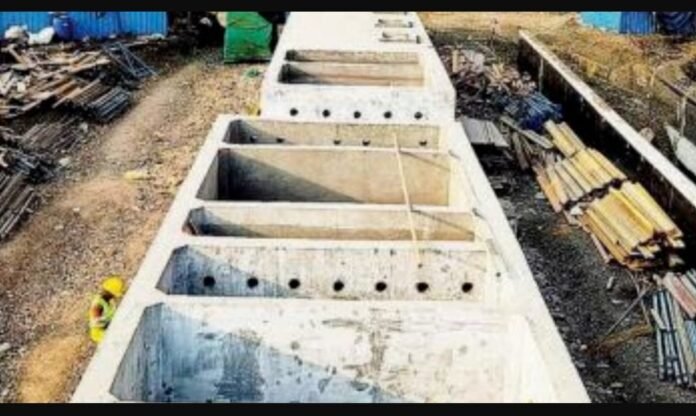In a bid to address sanitation challenges and promote sustainable water management, the Brihanmumbai Municipal Corporation (BMC) has taken a commendable step by establishing four decentralized sewage treatment plants in slum clusters located in South Mumbai. The initiative aims to recycle and reuse approximately 4.85 lakh litres of wastewater generated in these areas, contributing to improved sanitation and environmental conditions.
By implementing these small-scale sewage treatment plants, the BMC is demonstrating its commitment to ensuring the well-being of residents in the slum clusters while addressing the pressing need for efficient wastewater management. The treatment plants will play a crucial role in treating the wastewater before it is discharged into water bodies or the environment, thus minimizing water pollution and potential health hazards.
The decentralized nature of these sewage treatment plants allows for greater efficiency and effectiveness in dealing with the specific needs of each slum cluster. This tailored approach ensures that the treatment processes are optimized, resulting in the removal of pollutants and harmful pathogens from the wastewater. As a result, the treated water can be safely reused for non-potable purposes such as irrigation, toilet flushing, and cleaning, contributing to water conservation efforts.
The establishment of these sewage treatment plants in South Mumbai slums signifies a significant step forward in improving living conditions and promoting sustainable practices in underserved areas. The initiative not only addresses the sanitation challenges faced by slum residents but also highlights the BMC’s dedication to creating a healthier and more environmentally friendly city.
The benefits of these treatment plants extend beyond immediate hygiene and environmental improvements. Access to proper wastewater management facilities can have far-reaching impacts on public health, reducing the risk of waterborne diseases and enhancing overall well-being within the slum communities.
This initiative by the BMC serves as a model for other urban areas grappling with similar challenges, emphasizing the importance of decentralized wastewater treatment systems as a viable solution. It showcases the potential for local, community-driven efforts to create positive change and lays the foundation for a more sustainable and resilient future.
The establishment of decentralized sewage treatment plants in South Mumbai slums marks a significant milestone in the journey towards improving sanitation, conserving water resources, and creating healthier living environments for vulnerable communities. With continued efforts and similar initiatives, it is hopeful that other regions will follow suit, bringing positive change to slum clusters and underserved areas across the nation.

